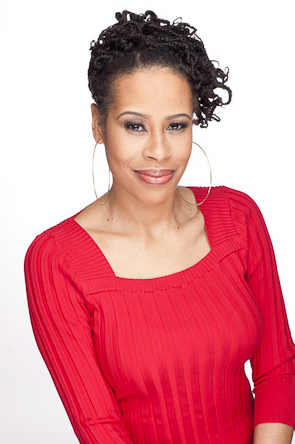A version of this piece, written in response to the video of a Spring Valley High School student’s violent arrest by Deputy Ben Fields, appeared on the author’s Facebook page. Editors
My first year out of college, I was the full-time drama teacher at Henry Ford Academy in Highland Park, Michigan.
Highland Park, for those who don’t know, is one of the most economically stressed cities in our country. The poverty in HP is Third-World equivalent.
I had this one student, we’ll call her Tonya. Tonya had a chip on her shoulder with me. She would rarely listen. She could roll her eyes with expert rotation. I would ask her to stand up or put something away or participate with very futile results. Tonya wasn’t playing with me. She had a mission to exhaust me on a daily basis. That is what I truly believed.
Tonya was an adolescent Black girl. She was a girl. I always saw her as a girl first, because I, too, was once an adolescent Black girl. I recognized that defiance. I recognized that attitude that demanded we work double time when dealing with her. When I was less than my patient self, I might’ve wanted to wring Tonya’s neck a few times. Tonya wasn’t making teaching easy. But an impoverished school and a state that was telling our district it was a failure and closing schools left and right wasn’t making learning easy for Tonya. And, perhaps like the state, Tonya blamed the teachers because she had no idea that the state government was denying resources to the city in which she lived. All Tonya knew was that she was on the expendable side of education. And Tonya felt like telling all of us to go f**k ourselves.
But I wouldn’t have it. Tonya exhausted me so I worked harder. As did her other teachers. I made her sit with me at lunch sometimes and write out her frustrations toward me. I let her roll her eyes as much as she could stand, while warning her that they could get stuck that way and then, what? I remember when Tonya finally wrote me a letter in all of her annoyances once day at lunch, and I was ready to tell her she better not cuss at me or say something inappropriate or she was going to spend the rest of the week with me. Instead, the letter read, “I’m sorry for my behavior, Ms. M. I love you.”
What I always remembered was that Tonya was a girl. Just a baby girl. As a teacher who loved her (rather than a teacher who was disgusted by her), I always knew that she had a story deep inside that I didn’t know. I always knew that she was vulnerable and sensitive and complex and righteously angry at many things I may never understand. But she was a girl. I recognized that because I was once a girl who looked not too different from her.
My hair, too, wasn’t always obedient. My ponytails didn’t always lay flat but sometimes stuck out of the side of my head. My classmates sometimes clowned me for not reflecting the image of beauty and femininity that was pushed down their throats by every aspect of media. Somewhere instinctively, I also felt the injustices of the world hurling at me because I didn’t see myself reflected in my full dimension as I saw of my white peers. Somewhere internally, I knew I was not socially protected. That if I fell down and showed the bruises, somehow I would be blamed for my own abuses. I was too clumsy. I was too rough. I wasn’t just a little girl.
When Tonya rolled her eyes, I felt inclined to get in her face. To yell. To tell her I was sick of her disrespectful behavior. But I never. Never ever. Never ever ever felt genuinely moved to hurt her. To break her spirit. To flip her out of a chair or drag her or criminalize her. All I ever really wanted was to break in and access that vulnerability that I knew she carried deep, but that was buried underneath several layers, because self-protection was the only true protection she would ever be promised.
Tonya is one. Throughout my teaching of mostly Black and Latina girls in Detroit and Brooklyn and the Bronx and Harlem and Queens and Chicago, I saw a million others. A million. I watched them suck their teeth. Roll their eyes. Fold their arms in defiance. And I also saw them smile and seek approval and open up like lotuses and beg to be valued. Because rarely are they. Rarely rarely are they ever valued.
I don’t know the varied stances around the incident at Spring Valley High. Maybe I don’t want to know. Maybe you saw this girl like Tonya and felt triggered by her defiance and then shut off your well of compassion that reminds you this is still a GIRL. But I want you to ask yourselves, no matter your cultural background, have you ever seen footage of a little White girl treated this way? Would you? Would you ever see media justify it, regardless of her defiance? Or would they see her as a girl first?
This is for the Tonyas. For the girls who are girls first, no matter what anyone else sees. For your vulnerability and your sass and your defiance that seems to socially strip you of your femininity. You are girls. You are future women. You are fully dimensional human beings and not animals to be dragged off and caged.
This is for your freedom. May you be liberated in all of your fragility and allowed to be your authentic, fully-feminine, complex selves. And may a teacher who is having behavioral problems with you see you in your fullness and call your mama or daddy or guardian before calling the cops.
Dominique Morisseau, Playwright/Actress, is alumni of the Public Theater Emerging Writer’s Group, Women’s Project Lab, and Lark Playwrights Workshop. Credits include: Skeleton Crew (Sundance; Lark Barebones; Atlantic Theater Company (Scott Rudin); Detroit ’67 (Public Theater, Classical Theatre of Harlem/NBT); Sunset Baby (Gate Theater; LAByrinth Theatre); Follow Me To Nellie’s (O’Neill; Premiere Stages). She has produced other original works with the Hip Hop Theater Festival, Penn State University, American Theatre of Harlem and The New Group. Her 3-play cycle, entitled The Detroit Projects include Detroit ’67, Paradise Blue, and Skeleton Crew. Paradise Blue premiered at the Williamstown Theatre Festival in July 2015 starring Blair Underwood and directed by Ruben Santiago-Hudson. Dominique is currently the Story Editor on the Showtime series Shameless. Awards: Jane Chambers Playwriting Award, two-time NAACP Image Award, Primus Prize commendation, Stavis Playwriting Award, Spirit of Detroit Award, U of M Emerging Leader Award, Weissberger Award, PoNY Fellowship, Sky-Cooper New American Play Prize, The Graham F. Smith Peace Foundation Award, and the Edward M. Kennedy Prize for Drama.



